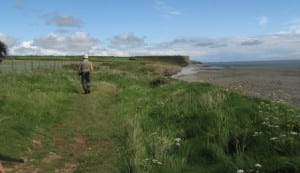Support us from £3/month
We deal with almost 1000 cases a year assisting communities, groups and individuals in protecting their local spaces and paths in all parts of England and Wales. Can you help us by joining as a member?
We have responded to the Welsh Government’s consultation on ‘Improving opportunities to access the outdoors for responsible recreation’.
We have welcomed the proposal for greater access rights but made it clear that this must not be at the expense of public paths. We have deplored the Welsh Government’s dismissal of the historic value of the path network, and its suggestions that the system should be ‘flexible’, ‘modernised’, ‘streamlined’ and ‘harmonised’. These are all familiar words to us and are euphemisms for rationalisation and loss of the old ways.
We have also deplored the proposal to allow for the prioritisation of recreational routes and access areas. Highway authorities must maintain the whole path-network, charging offenders for the removal of obstructions and thereby recovering the cost, and also ensuring that any agri-environment money paid to the owner or occupier under the Glastir scheme is withdrawn.
We have proposed the following
- The addition of a principle of bringing everyone together, to reach consensus on plans before they are implemented, following the practice advocated in A Common Purpose for common-land management.
- The Welsh Government should recognise that money spent on access and rights of way is an investment, with excellent returns for health and well being, and for the local economy.
- Revocation of the law which provides for the definitive map to be closed on 1 January 2026 to claims for unrecorded pre-1949 routes based on historical evidence.
- We have proposed alternative ways of getting help with the path network, such as partnerships with the probation office to get people on community service orders working on paths.
- Highway authorities should be able to issue on-the-spot fines for path blockers
- Highway authorities must charge the offender the full costs for removing path obstructions.
- Glastir (agri-environment) payments should be withdrawn when paths are blocked.
- The authorisation of structures on public paths under section 147 of the Highways Act 1980 should include a duty to remove them when they are no longer required, with a public register of authorisations.
- Regulations and guidance should be introduced for path closures for special events (section 16A-C of the Road Traffic Regulation Act 1984).
- Highway authorities should have a duty to implement rights of way improvement plans.
- Cycle tracks should be shown as public highways on the definitive maps.
- Shared use should be permitted where appropriate and where it will not cause conflict, but infrastructure must be appropriate for the surroundings and not over-engineered.
- The Welsh Government must recognise the public value of common land.
- Local authorities should have a duty to enforce against unlawful works on common land
- The Welsh Government should adopt the Dog Walking Code.
- Access rights should be extended to all open country, including the ffridd (uncultivated inbye land).
- There should be a legal requirement to provide access points to all access land
- There should be a right to ride horses on all commons
- The Welsh Government should encourage local authorities to dedicate their land as village greens.
- Public bodies should be encouraged to use section 16 of the Countryside and Rights of Way Act 2000 to dedicate their land for public access (or to dedicate ‘higher’ rights on land where walkers already have rights).
- Access to the coast should be increased beyond the coast path by use of the Marine and Coastal Access Act 2009, which provides for spreading room and roll back of the path when the coast is eroded.
We have agreed with the Welsh government on the following
- The costs of making path orders should be reduced by advertising online not in the press
- It should be possible to transfer ownership of an application for a definitive map modification order (DMMO).
- Definitive maps should be digitised and applications to alter them made electronically.
- The surveying authority should serve notice of a DMMO on the landowner, not the applicant.
- The surveying and highway authorities should have powers to reject frivolous objections to path orders.
- Local authorities should be able to dedicate new rights of way on their land.
We have deplored the following proposals in the paper
- The terminology used in the principles which degrades the value of public paths.
- The negative nature of the challenges set out in the paper, which implies that the path network is outdated, inflexible and too costly, without recognising its value to the Welsh population.
- The dismissal of the importance of the history of rights-of-way network and its contribution to Welsh heritage and culture.
- The proposal to trade off greater access with rights of way.
- The proposal to prioritise the maintenance of routes, so that some are ignored.
We have explained to the Welsh Government that
- the problems spelt out in the paper regarding paths through farmyards are overstated and a generalisation; many paths through farmyards are important, providing a direct route and giving views of interesting buildings;
- lack of path maintenance is likely to cause them to be less used, that does not mean that those paths are not important. If paths are in good order they will be used.

